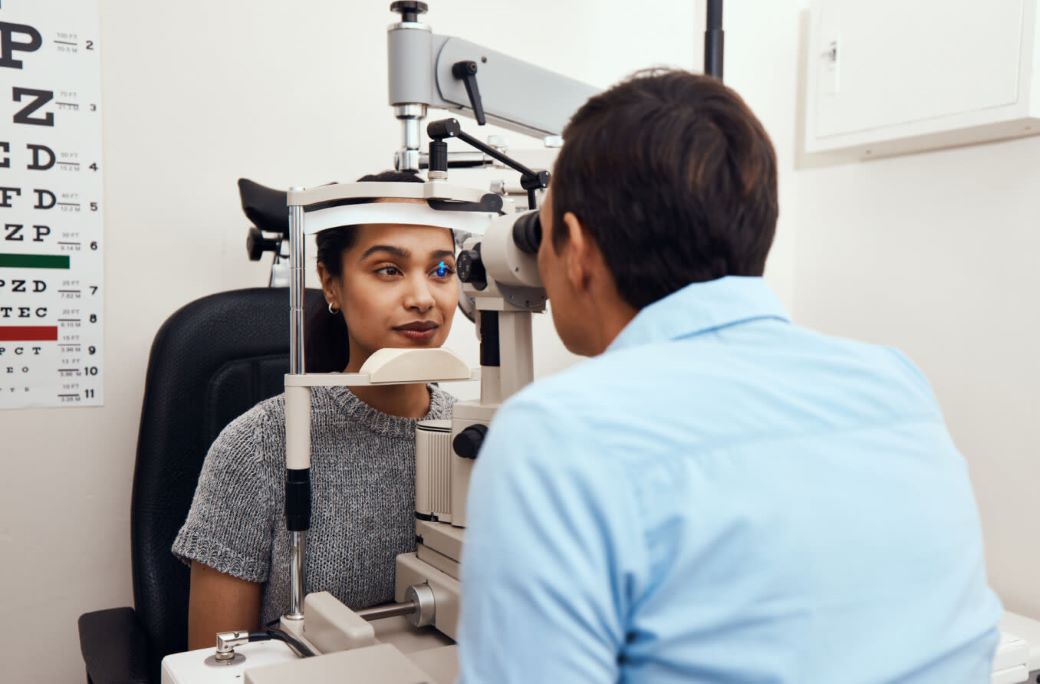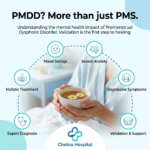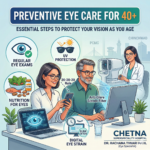Your eyes are incredibly important – they’re our primary way of experiencing the world around us. However, many of us overlook eye health until something goes wrong. Just like other aspects of your health, maintaining optimal vision requires regular care and attention. One key way to ensure your eyes stay healthy for years to come is by scheduling an annual eye check-up with an experienced ophthalmologist.
In this blog post, we’ll dive into why annual eye exams are so vital, what they entail, the risks of skipping them, and how early detection of eye conditions can significantly improve outcomes. Let’s explore how a routine eye check-up can play an essential role in safeguarding your vision.
What Is an Annual Eye Check-up?
An annual eye check-up is a comprehensive exam performed by a qualified eye doctor to assess the health of your eyes, detect any issues early on, and ensure that your vision is functioning as it should be. Regular exams can help detect a variety of eye problems, ranging from common issues like nearsightedness and farsightedness to more serious conditions, such as glaucoma or cataracts.
During this exam, the doctor will thoroughly evaluate the health of your eyes, test for changes in vision, and look for potential underlying health concerns that may impact your eyesight.
Why Are Annual Eye Check-ups Important?
It’s easy to assume that if we can see clearly, we don’t need to worry about our eye health. Unfortunately, many eye problems don’t show symptoms until they have already progressed to advanced stages. Regular eye exams are the best way to catch these issues early, ensuring more effective treatments and reducing the risk of long-term damage.
1. Early Detection of Vision Issues
One of the most important reasons to have annual eye exams is to identify any vision issues that may develop over time. Conditions like nearsightedness (myopia), farsightedness (hyperopia), or astigmatism can gradually affect your sight without you even noticing. In the early stages, they may be subtle, but as they worsen, they can impact your daily activities, work, and quality of life.
By attending regular check-ups, you can get updated prescriptions for glasses or contact lenses, ensuring you always have clear vision. For example, if your prescription needs adjustment, your eye doctor can provide a new lens that perfectly fits your vision needs. These simple adjustments can go a long way in keeping your eyes healthy.
2. Prevention of Serious Eye Diseases
Certain eye diseases, such as glaucoma, cataracts, or macular degeneration, often progress gradually without presenting any obvious symptoms early on. If left undiagnosed, these conditions can cause significant vision loss. However, annual eye check-ups allow doctors to detect these issues early before significant damage occurs.
Glaucoma, for instance, can lead to blindness if not treated. Since glaucoma often doesn’t have noticeable symptoms in its early stages, it’s vital to detect it as early as possible through a thorough exam. This way, medications or treatments can be administered to slow the disease’s progression, potentially saving your sight.
Cataracts are another age-related eye condition that can go unnoticed until your vision becomes noticeably blurred. Through regular check-ups, your ophthalmologist can monitor the cloudiness in your lens and suggest surgical solutions before the cataract severely impacts your daily life.
3. Monitoring Eye Health in Children and Aging Adults
Annual eye exams aren’t just for adults – children, and older adults should also prioritize regular check-ups for their eye health. Kids often don’t realize when they are having difficulty seeing, so it’s essential for parents to make sure that their child has their eyes checked regularly.
Eye conditions like amblyopia (lazy eye) and strabismus (crossed eyes) are common in children. Early detection and treatment are crucial to preventing long-term vision problems. An annual exam can identify problems that may affect your child’s learning abilities, behavior, and development.
Similarly, aging adults should have their eyes checked annually, as older individuals are more prone to age-related conditions such as macular degeneration and diabetic retinopathy. With appropriate monitoring, the progression of these diseases can be slowed or managed, helping to maintain quality of life in older years.
4. Link Between Eye Health and Overall Health
It’s not just about your vision – the health of your eyes is directly related to your overall well-being. An eye check-up can sometimes reveal signs of diabetes, high blood pressure, high cholesterol, and even brain tumors. During an eye exam, your doctor can look for changes in the blood vessels in your eyes, which can be indicative of systemic health problems.
Conditions such as diabetic retinopathy can occur as a result of diabetes and cause serious vision loss if untreated. Early detection during an eye exam can help you work with your healthcare providers to manage these underlying conditions before they result in significant complications.
What Happens During an Annual Eye Check-up?
The process of an annual eye check-up can vary slightly depending on your needs, but here’s a typical overview of what to expect:
- Visual Acuity Test
This test evaluates how well you can see at various distances. You’ll be asked to read letters from an eye chart, with one eye covered at a time, to determine if you need glasses or contact lenses. - Pupil Dilation
The ophthalmologist may use special eye drops to widen your pupils. This allows them to get a clear view of the back of your eye, specifically your retina and optic nerve, to check for conditions like glaucoma and macular degeneration. - Tonometry
This test measures the pressure inside your eye. High pressure can be a sign of glaucoma, so it’s an important diagnostic tool in preventing this condition. - Retinal Exam
The doctor may examine the retina with specialized tools to look for signs of disease or damage. Conditions like retinal detachment or diabetic retinopathy can be detected this way. - Eye Muscle Test
This tests how well your eye muscles work together. The doctor will ask you to focus on a target and follow it with your eyes. - Visual Field Test
This checks the full scope of your vision, making sure you have no blind spots that could indicate problems like glaucoma. - Assessment of Overall Eye Health
In addition to tests for vision and eye diseases, your doctor will assess the overall health of your eyes, including your eyelids, cornea, lens, and more.
Conclusion: Prioritize Your Eye Health
Incorporating an annual eye check-up into your routine is one of the best ways to protect your vision and overall health. Whether you’re due for an update to your glasses prescription, concerned about your eye health, or just want peace of mind, regular exams give you the chance to catch potential issues early and stay on top of your visual needs.
By staying proactive and making your eye health a priority, you’re investing in a lifetime of clear and comfortable vision. Visit Chetna Hospital for a thorough annual eye check-up – our experienced team of ophthalmologists will provide you with the care and attention your eyes deserve.
Remember, your vision is priceless – don’t take it for granted. Schedule your appointment today and give your eyes the attention they need for a healthy, vibrant future!
For Consultation Contact us on 9168690448 / 9158681123
Website – www.chetnahospital.co.in
Address – Chetna Hospital, Sambhajinagar, MIDC, G Block, Near Rotary Club, Chinchwad 411019
.
.
.
#hospital#pune#pcmc#chinchwad#medical#medicalservices#dryeyetreatment#dryeyerelief#dryeyedisease#dryeyetherapy#catract#catractsurgery#catracteyesurgery#catracteyeoperation#eyedoctor#eye#glaucoma#conjunctivitis#ophthalmologist#eyediseases#eyepain#pinkeye#hazeleyes#myopia#eyeinfection#amblyopia#dryeyesyndrome#eyeproblems#motibindu#motibinduoperation













